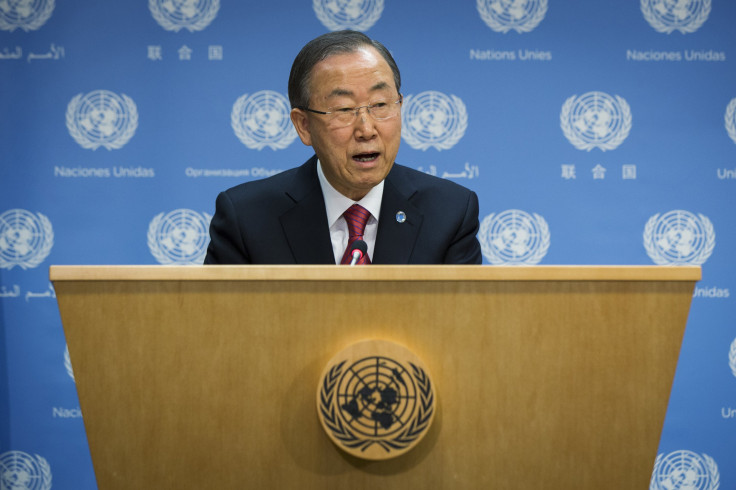UN Secretary-General Ban Ki-Moon Invites Iran To Syria Peace Talks In Switzerland; Iran Accepts As US Voices Concern

The United Nations, or U.N., on Sunday invited Iran to join upcoming talks this week in Switzerland to discuss the Syrian crisis. The invitation, which evoked a concerned response from the U.S. Department of State, was accepted by the Middle Eastern nation.
The Geneva Conference on Syria, which will be chaired by Secretary-General Ban Ki-Moon, will open on Jan. 22 in Montreux and move to the Palais des Nations in Geneva on Jan. 24, where Lakhdar Brahimi, the Joint Special Representative of the U.N. and the League of Arab States for Syria, will facilitate talks between President Bashar Assad’s government and the opposition, according to a U.N. news release. The conference aims to convince the Syrian government and the opposition to implement the decision of a 2012 conference, which had called for the creation of a transitional government in preparation for an election.
“This is a courageous and historic step in the interest of a negotiated political solution to a three-year conflict that has caused so much misery and destruction,” Ban said, in a statement, adding that Iran needs to be part of the solution to the Syrian crisis.
The invitation was issued to Iran after "speaking at length in recent days" with Iran's Foreign Minister Javad Zarif, who had "pledged that Iran would play a positive and constructive role in Montreux," Associated Press reported, citing Ban.
However, the U.S. state department sounded a note of caution about the move, stating that it is “deeply concerned about Iran's contributions to the Assad regime's brutal campaign against its own people, which has contributed to the growth of extremism and instability in the region.”
Secretary of State John Kerry had said he would welcome Iran's participation in the talks only if the country supported the call for a transitional government in Syria created by mutual consent among the Syrian factions, AP reported.
"This is something Iran has never done publicly and something we have long made clear is required," the state department release noted Sunday, adding: "If Iran does not fully and publicly accept the Geneva communique, the invitation must be rescinded."
The U.N. has invited more than 30 nations to the conference, including the five permanent members of the U.N. Security Council, representatives of the Arab League, the European Union and the Organization of Islamic Cooperation, according to its release.
More than 100,000 people have been killed and about 8 million people displaced from their homes since the conflict began in March 2011 between Assad’s government and various opposition groups seeking his ouster.
© Copyright IBTimes 2024. All rights reserved.












